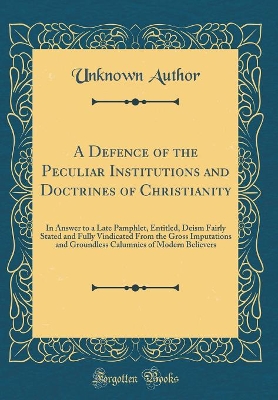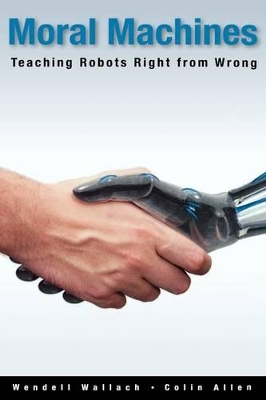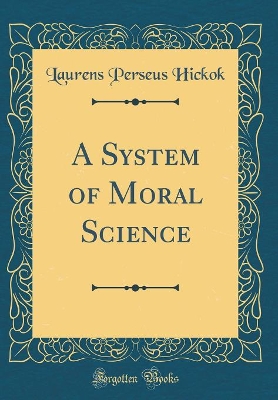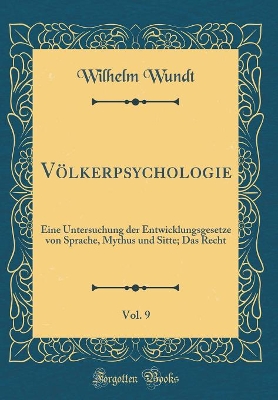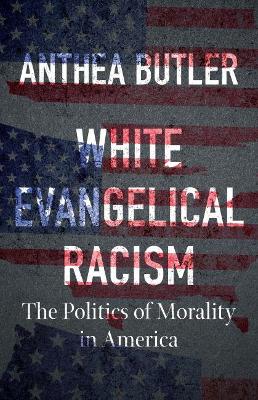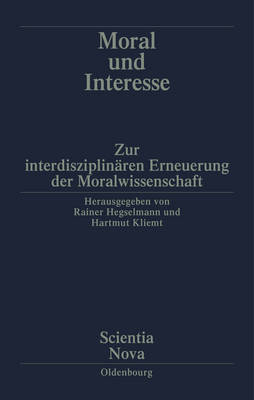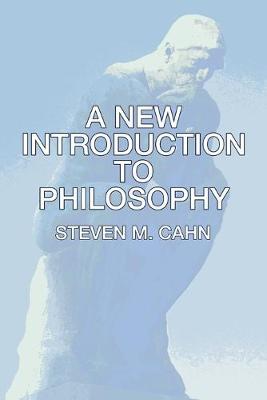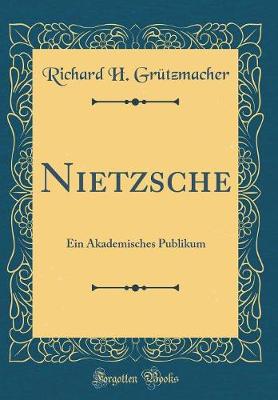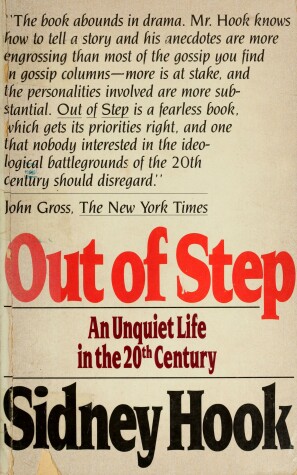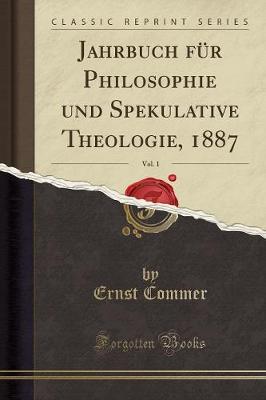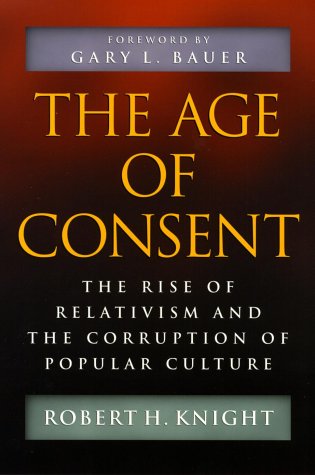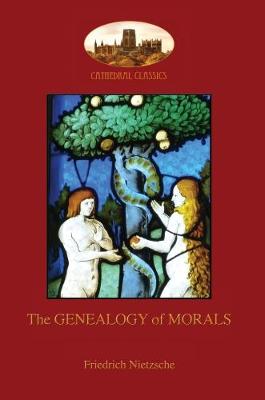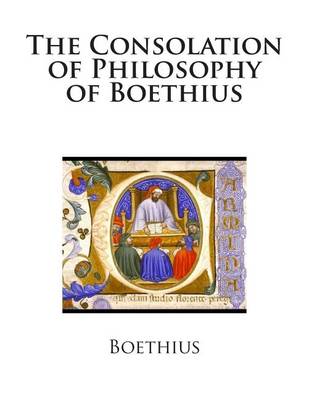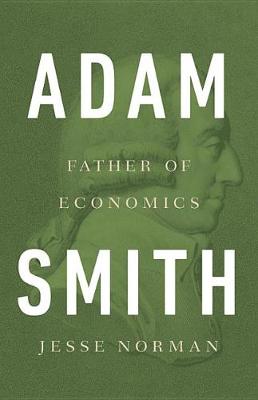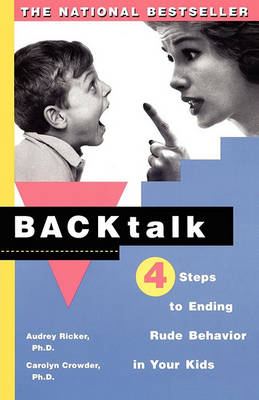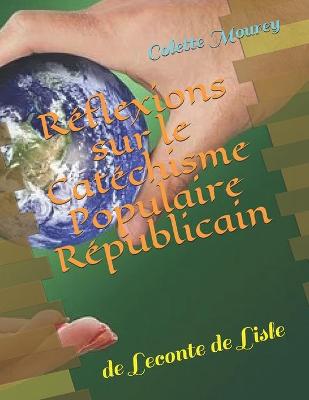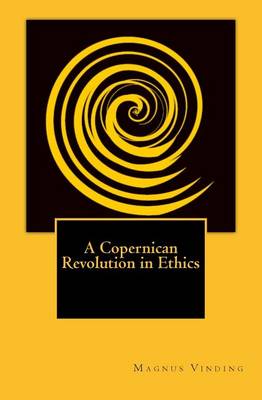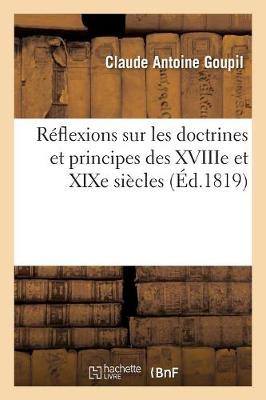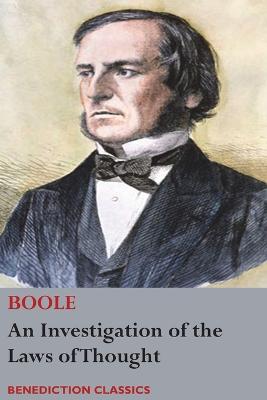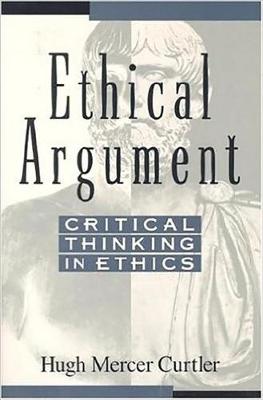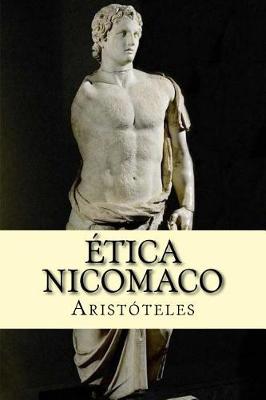A Defence of the Peculiar Institutions and Doctrines of Christianity
by Unknown Author
Computers are already approving financial transactions, controlling electrical supplies, and driving trains. Soon, service robots will be taking care of the elderly in their homes, and military robots will have their own targeting and firing protocols. Colin Allen and Wendell Wallach argue that as robots take on more and more responsibility, they must be programmed with moral decision-making abilities, for our own safety. Taking a fast paced tour through the latest thinking about philosophical e...
The American political scene today is poisonously divided, and the vast majority of white evangelicals plays a strikingly unified, powerful role in the disunion. These evangelicals raise a starkly consequential question for electoral politics: Why do they claim morality while supporting politicians who act immorally by most Christian measures? In this clear-eyed, hard-hitting chronicle of American religion and politics, Anthea Butler answers that racism is at the core of conservative evangelical...
Jahrbuch Fur Philosophie Und Spekulative Theologie, 1887, Vol. 1 (Classic Reprint)
by Ernst Commer
The book called The Consolation of Philosophy was throughout the Middle Ages, and down to the beginnings of the modern epoch in the sixteenth century, the scholars familiar companion. Few books have exercised a wider influence in their time. It has been translated into every European tongue, and into English nearly a dozen times, from King Alfreds paraphrase to the translations of Lord Preston, Causton, Ridpath, and Duncan, in the eighteenth century.
'A superb book' Financial Times, Books of the YearAdam Smith is now widely regarded as 'the father of modern economics' and the most influential economist who ever lived. But what he really thought, and what the implications of his ideas are, remain fiercely contested. Was he an eloquent advocate of capitalism and the freedom of the individual? Or a prime mover of 'market fundamentalism' and an apologist for inequality and human selfishness? Or something else entirely? Jesse Norman's brilliantly...
Happiness, Morality, and Freedom (Studies in Moral Philosophy, #8)
by Arthur Melnick
To be happy is to be emotionally and evaluatively satisfied with one's life according to a standard of satisfaction one can claim as one's own as a reasoning being. Since there is no definitive proof of what the standard of satisfaction is, being open to the devising and testing of standards by others is part of claiming one's own standard as a reasoning being. This open-ness is equivalent to being open to and hence respecting and caring for the pursuit of happiness of others. Since such respe...
Reflexions Sur Les Doctrines Et Principes Des Xviiie Et Xixe Siecles (Philosophie)
by Goupil-C
An Investigation of the Laws of Thought, on Which are Founded the Mathematical Theories of Logic and Probabilities
by George Boole
This book teaches students about argument in ethics by involving them in an ethical argument about relativism. The book argues against relativism and encourages students to question assumptions and present counter-arguments. The book also stresses basic ethical principles and includes a chapter with numerous cases for discussion. An excellent teaching tool!
Nietzsche on Morality
by Ohn P Wilson Professor of Law and Director of the Center for Law Philosophy & Human Values Brian Leiter
